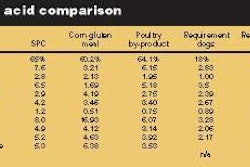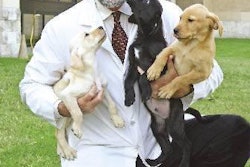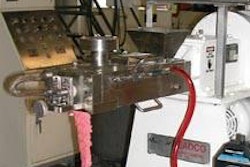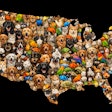Petfood companies and corporate "headhunters" often ask me if I know of anyone who would be interested in a position in regulatory affairs. Although I know many in the industry who already work in that capacity, I generally am not privy to any reasons they may have to want to leave their current employment.
As a result, I am very hesitant to pester those who likely aren't interested with unsolicited queries. However, one source that may help in filling these needs of petfood companies is the University of Southern California (USC) Master's Program in Regulatory Science. The USC program may also be helpful for those already in the field who want to expand their knowledge and/or advance their careers in regulatory affairs.
Dedicated training in regulatory affairs
I became aware of the USC program a few years ago when I was asked to give a presentation to a class on the regulation of veterinary products. I've been giving several lectures a year ever since. Now, I've given similar lectures in vet schools and elsewhere, but in those cases my presentation may have been the only exposure to the topic the audience ever received. In the case of the USC program, though, my lectures are only a small part of their regulatory training.
There may be similar programs in other institutions, but in my experience the USC curriculum is unique. To obtain a Master of Science degree at USC, students are required to attend graduate level lectures in a wide variety of subjects. Not unexpectedly, the majority of it deals with products for human use, including foods and dietary supplements, along with drugs, biologicals, medical devices and cosmetics. Course topics also include quality assurance, risk management, clinical trial design and medical writing. In addition to course work, opportunities also exist for internships and directed field-research projects.
Since many of the students also work while attending this program, most of the lectures are given on Fridays, Saturdays and Sundays. If that is still too heavy a burden, part-time students are also welcome. For those needing continuing education credits or advanced knowledge of a specific subject, but are not seeking a Master of Science degree, single courses may be audited or taken for graduate school credit. To make it even easier for those outside the Southern California area, courses are also available online.
For more information about the USC program, visit: http://regulatory.usc.edu.
Advantages for the petfood industry
I think many of the people involved in the regulation of petfoods began their careers the same way I did, namely, by accident. Although I had extensive scientific training in the fields of veterinary medicine and nutrition prior to joining the Food and Drug Administration, I had negligible understanding or appreciation for the laws and regulations that govern the feed industry. Therefore, virtually everything I know of the subject comes from "on the job" training.
A few petfood people I know have come from other facets of the regulatory arena (e.g., pharmaceutical companies), but I know of a number of others on both the industry and government sides who are similarly trained as scientists, not regulatory affairs specialists. In fact, I am aware of at least a few cases where they came aboard the company as scientists, only to find these other duties suddenly thrust upon them. While it works for many this way (I'm very happy with the path I've taken), for others it may be an unwanted burden and departure from their true career aspirations.
On the other hand, those who graduate from the USC program know exactly what they're getting into. The students I've met while giving my presentations are inquisitive and enthusiastic about the subject. Granted, with the brief exposure to petfood regulation they do receive from me, none of them are likely able to "hit the ground running" the moment they step in a petfood facility. However, the training they do receive gives them an ideal framework upon which to learn about AAFCO, state feed control officials and the laws and regulations unique to petfoods. While most of them probably didn't think very much about the petfood industry when they started the program, with my help I believe at least a few of them are considering it now.
Regulatory affairs position
In my opinion, every petfood company should have a dedicated regulatory affairs person on staff. In today's competitive industry, a consultant may still be necessary to help with many of the complex or delicate matters that "push the envelope" regulatory-wise. However, that does not replace the need for someone who is specially trained and, perhaps more importantly, eager to perform the day-to-day operations involving matters such as general label compliance, claim substantiation and product registration. To me, it simply makes sense to put a person in the position who actually wants to do the job and is schooled for it.
The USC Program Director routinely posts job position announcements in the field as a service to both current students and alumni of the program. Petfood companies who may be interested in hiring should send an E-mail to Dr. Frances Richmond ([email protected]) describing the available position. If you do, make sure to tell her I sent you.



















